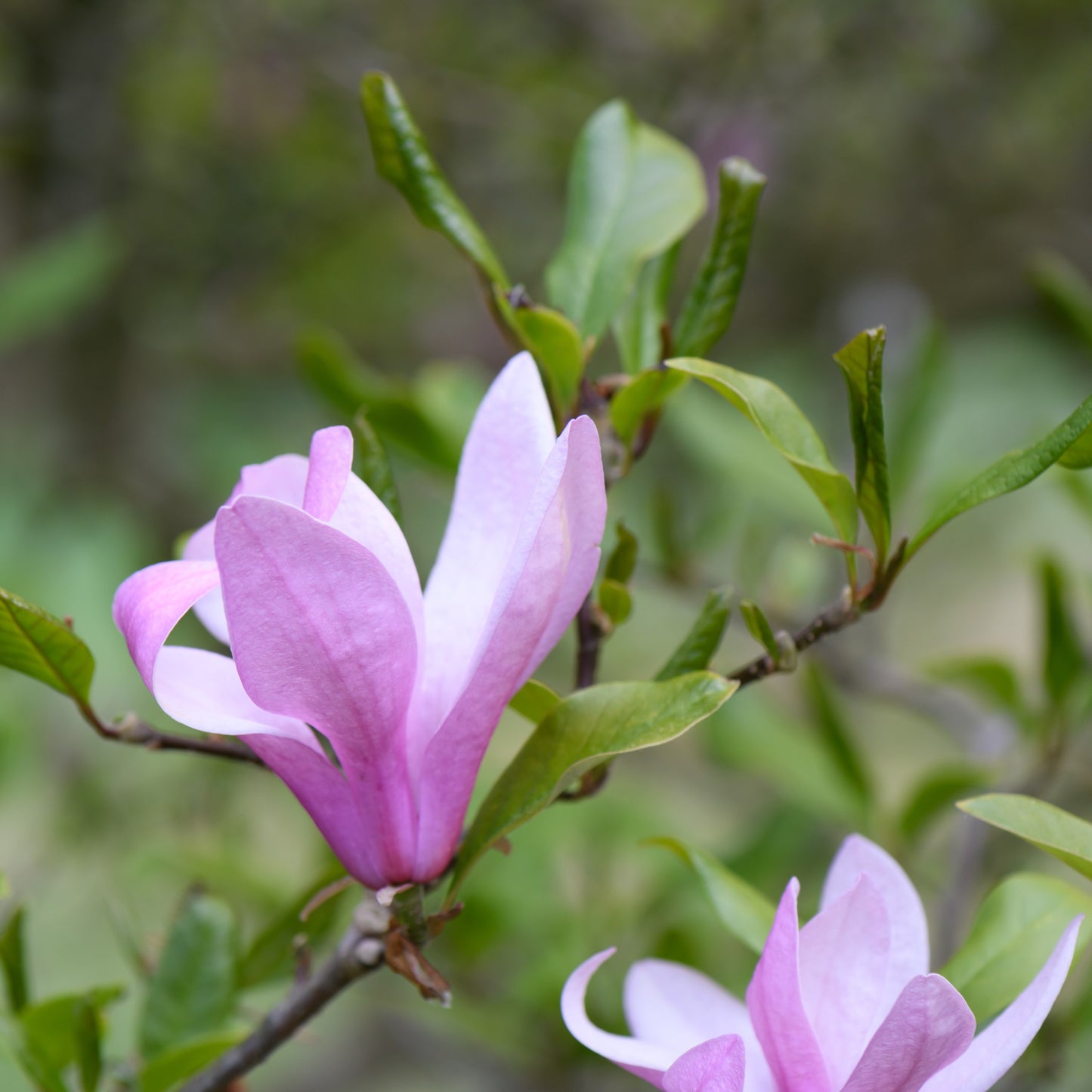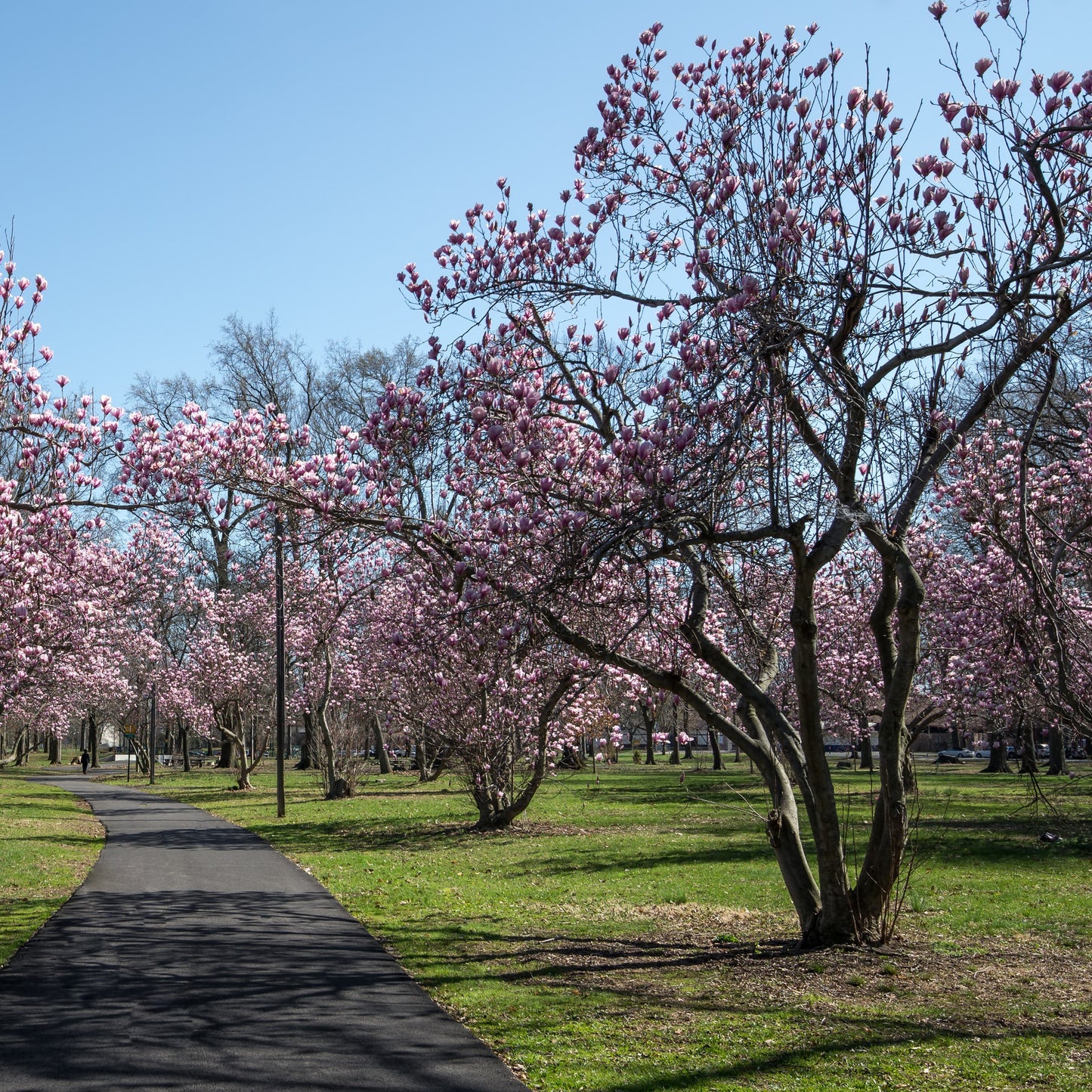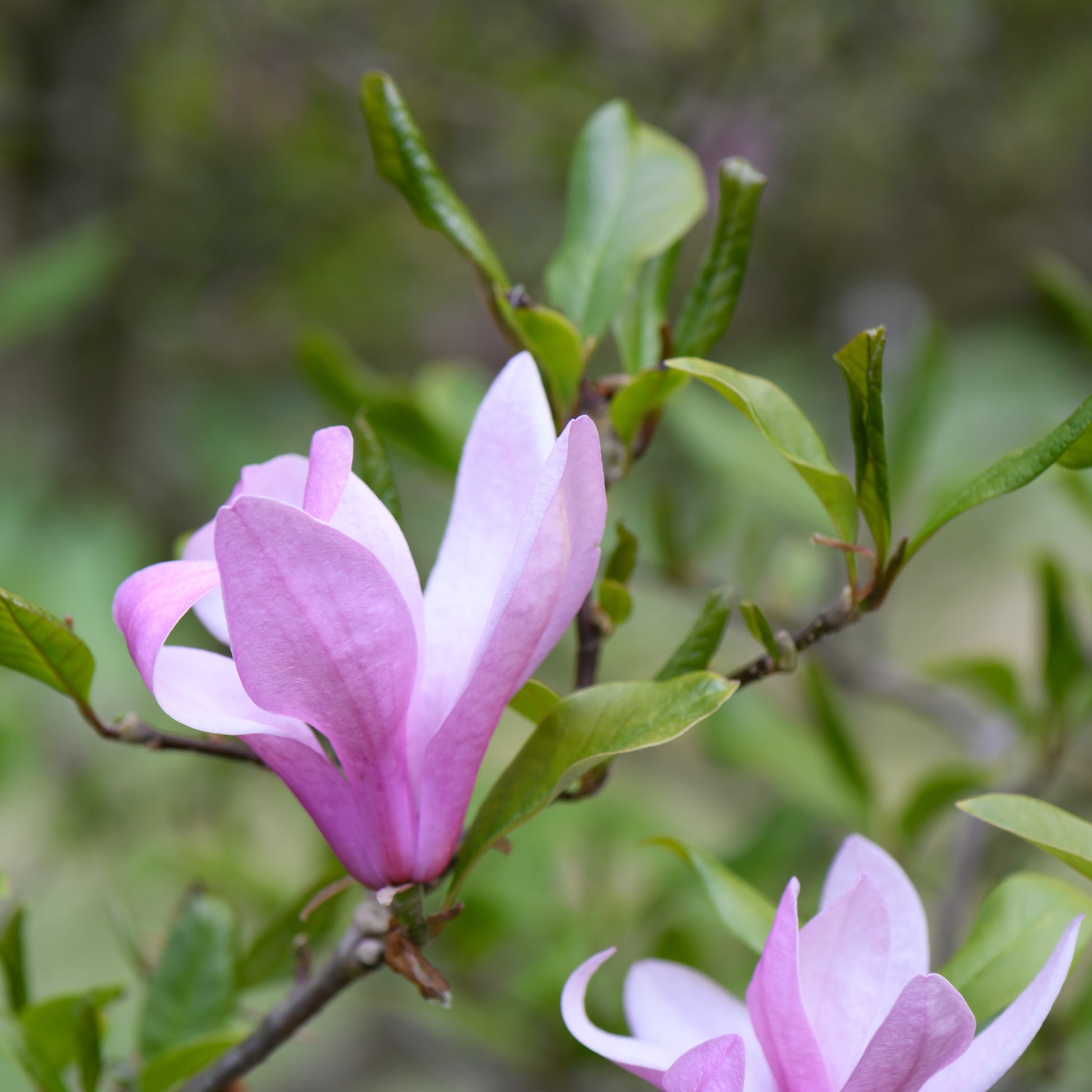Limited Quantities - Reserve Now For Fall
Ann Magnolia Tree
Ann Magnolia Tree
Couldn't load pickup availability
Magnolia x Ann
Ann Magnolia
The Ann Magnolia is a compact, spring-flowering ornamental tree celebrated for its deep reddish-purple blooms that appear before the foliage each spring. Part of the “Little Girl” Magnolia series, this bare root variety was developed to bloom later in spring, helping it avoid frost damage and extend its showy season.
With its shrub-like structure and long-lasting flowers, the Ann Magnolia is perfect for small gardens, borders, or foundation accents where larger trees might overwhelm. It’s fragrant, pollinator-friendly, and delivers an elegant seasonal display without demanding much in return.
Ann Magnolia
| Attribute | Details |
|---|---|
| 🌱 Variety | Rooted |
| 🌿 Botanical Name | Magnolia x ‘Ann’ |
| 🏷️ Common Names | Ann Magnolia, Little Girl Magnolia |
| 🌳 Mature Height | 8–12 feet |
| 🌐 Mature Width | 8–10 feet |
| 📈 Growth Rate | Moderate (12–18 inches per year) |
| ⏳ Lifespan | 30–50+ years |
| 🧊 USDA Zones | 4–8 |
| ☀️ Sun Preference | Full sun to partial shade (best bloom in full sun) |
| 🧱 Soil Type | Moist, well-drained loamy or sandy soils |
| ⚖️ Soil pH | Slightly acidic to neutral (5.5–7.0) |
| 💧 Water Needs | Moderate; prefers consistent moisture |
| 🍃 Foliage Color | Medium green (deciduous) |
| 🌸 Flower Color | Deep reddish-purple |
| 👃 Fragrance | Lightly fragrant |
| 🐝 Wildlife Attraction | Bees, butterflies, early-season pollinators |
| 🌿 Growth Habit | Compact, rounded, multi-stemmed |
| 🌸 Self-Pollinating? | Yes |
| ↔️ Spacing | 6–10 ft for grouping; 10–12 ft for individual placement |
| 🏡 Landscape Uses | Specimen tree, cottage gardens, shrub borders, accents |
| 🧹 Maintenance Level | Low |
Environmental Benefits
🌸 Offers early-season nectar for pollinators coming out of winter
🌍 Provides flowering beauty without the footprint of larger trees
🐝 Draws bees and butterflies with fragrance and color
🏡 Thrives in urban gardens, courtyards, and tight planting areas
Pros & Cons
| ✅ Pros | ⚠️ Cons |
|---|---|
| 🌸 Bold reddish-purple blooms before leaves emerge | ❄️ Late frost can still nip early buds in extreme zones |
| 🌿 Compact habit perfect for smaller landscapes | 🍃 Deciduous – bare in winter |
| 🐝 Pollinator-friendly and lightly fragrant | 🧪 Needs well-drained soil to prevent root issues |
| 🌞 Tolerates full sun or partial shade | ✂️ May require shaping in early years to maintain form |
| 🔁 Later bloom time helps avoid frost damage | 🌱 New transplants may need frequent watering early on |
Planting & Care Guide
🛁 Soak roots in water for 6–12 hours before planting
🕳️ Dig a hole twice as wide as the root mass; keep crown level with soil
🌾 Mulch 2–3 inches around base to retain moisture and block weeds
💦 Water weekly during the first season; taper off as plant establishes
✂️ Prune only after blooming to maintain natural form
🧪 Fertilize in early spring with a balanced, slow-release tree fertilizer
The Ann Magnolia brings a punch of early color, compact form, and classic charm to your landscape. Whether planted solo or in a group, this ornamental beauty shines with deep blooms, soft fragrance, and easy-care performance year after year.
Share




